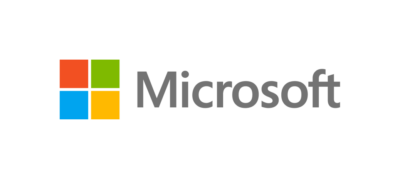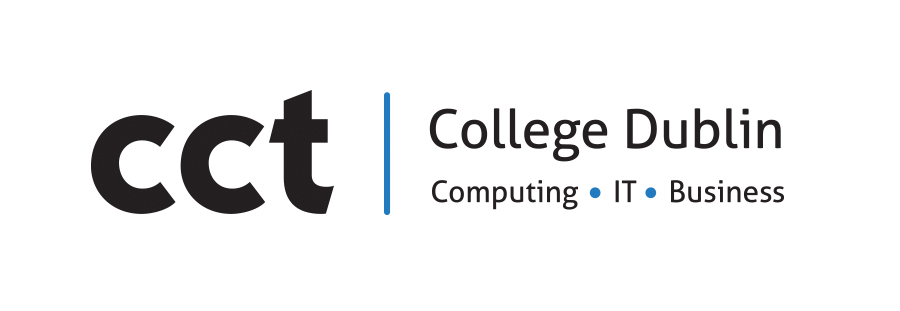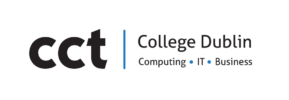Certificate in Digital Transversal Skills Course Overview
The Certificate in Digital Transversal Skills has been designed to provide learners with the core digital and soft skills required now and for the workplace of the future. This is also an ideal foundation programme which can prepare graduates to access higher education programmes from level 7 on the Irish NFQ, broadly in Business, ICT and Computing fields.
The programme is designed for learners seeking to develop their knowledge, skills and competence in the area of Digital Skills and Transversal Skill that are fundamental in today’s modern work environments. This special purpose programme is designed to produce graduates with the attributes required of a Digitally Skilled employee today, and the ability to continue to develop knowledge, skill and competence to remain competitive and employable in an ever-advancing sector. The Certificate also provides learners in a related industry, and those seeking employment within the IT field, a greater opportunity to advance and/or specialise their education.
On successful completion of the course, learners will be awarded a 60 ECTS Special Purpose Award at Level 6 of the Irish NFQ. The qualification will also enable graduates to access further studies in a wide variety of disciplines including ICT.
 The programme comprises classroom and laboratory learning as well as interactive workshops. This is carried out within an industry focused environment. Industry-initiated real-world problems will be provided by our industry supporters (including Microsoft Ireland and it’s partner network of 1000+ companies) and used as the context for planning and designing assessment solutions, as well as being an aid for problem solving sessions. The incorporated learning from all modules aims to produce industry-ready graduates and learners who are prepared for academic progression in this fast developing discipline.
The programme comprises classroom and laboratory learning as well as interactive workshops. This is carried out within an industry focused environment. Industry-initiated real-world problems will be provided by our industry supporters (including Microsoft Ireland and it’s partner network of 1000+ companies) and used as the context for planning and designing assessment solutions, as well as being an aid for problem solving sessions. The incorporated learning from all modules aims to produce industry-ready graduates and learners who are prepared for academic progression in this fast developing discipline.
Modules include Digital Age Literacy, High Productivity, Office Applications, Effective Communications, Acting Autonomously, Inventive Thinking, Professional Development and Legal, Ethical and Privacy Issues. The transferable and transversal skills that will be developed by the learners on this programme include critical analysis, advanced evaluation, self-analysis and personal reflection, problem solving, communication skills, written communication skills, time management, team/group work management and professionalism.
This is a one year full-time Certificate programme with contact hours delivered during the day. Learners can complete the programme over 1 calendar year, comprising 2 semesters.
The overall objectives of this Digital Transversal Skills Certificate programme are:
- To provide graduates with the ability to advance their IT career by attaining a
qualification which enables them to secure industry entry level positions, or further
advancement within their current sphere. - To provide the IT sector with graduates who possess the requisite attributes to make
a positive contribution to the IT industry. - To provide learners with an NFQ level 6 Special Purpose Award that will provide
knowledge, skill and competence to set them on a progression pathway to further
their education in a variety of disciplines and specialisms. - To provide graduates with the foundation upon which they can further their studies
at NFQ Level 6, or progress to NFQ Level 7 in Computing or one of many Computing related disciplines (in Ireland or abroad) such as Computer Science, Computational Science, Information Systems, IT Management, Technology and Innovation Management, Information Security & Digital Forensics, Information Systems Processes, and others. - To provide graduates with an environment conducive to personal development
established through the use of peer learning, mentoring and formative feedback, thus
allowing them to acquire new knowledge and the ability to identify their further
learning needs and continuing professional development.
Upon successful completion of this programme graduates should:
- Be able to demonstrate a topically understanding of the fundamental theories, concepts and methods in current Information Technology areas, and how they underpin the practical technologies, skills and aspects of the computing and IT domains including computer systems, office applications, databases and web and creative digital technologies.
- Have an ability to convey knowledge and understanding of current best practices in foundational areas in Information Technology, including where the boundaries of their existing knowledge are, coupled with the need to continuously improve this knowledge in order to expand those boundaries, particularly in the areas of office applications, creative design and web technologies, incorporating personal and soft-skills with their technical knowledge.
- Have proficiency in utilising a broad based skill-set with specialised abilities that allow work on projects that incorporate multiple core areas.
- Have the ability to analyse problems across various problem domains, design appropriate product solutions and implement and test solution to agreed standards, while being able to provide and present written reports.
- Have an ability to design and develop professional presentation materials using appropriate digital tools and methods.
- Have the ability to work as part of a team within and use informed judgement for the prioritising of design and development requirements, developing appropriate plans and courses of action, and adopting suitable approaches to problem solving.
- Be able to implement operational solutions within particular domains while adhering to specified system and operational requirements.
- Be able to draw upon diagnostic, technical, interpersonal and planning skills as well as critical thinking, to implement both standard and inventive approaches to solutions.
- Be capable of working within a team or independently to identify and apply problem solving to high level issues within digital project development.
- Be able to work as a member of a multi-disciplinary and diverse team, drawing from personal initiative when required, including being able to take direction from supervisors, and feedback from others, to solve real-world and business problems, while interacting and communicating effectively with staff and colleagues at all levels of an organisation in an international context.
- Be aware of the existing limits of their own knowledge and have an understanding of the necessity of continuing professional development incorporating the ability of processing and assimilating new knowledge and skills as well as seeking and making use of guidance.
- Have the ability to identify and understand the wider social, cultural, political and business context within Information Technology as well as the need for professional standards and ethics within the industry to maintain the integrity and independence in their professional judgement, subscribing to and promoting an ethical approach to the provision of digital technologies and services, and to be fair and supportive of their colleagues and work environment.
The transferable and transversal skills that will be developed by the learners on this
programme include:
- Critical analysis: through analysing the outcomes of module work, case study, and
project work; - Advanced evaluation: through practical work, group work, and individual project work
and formative feedback; - Self-analysis and personal reflection: through group work and individual project work,
in which the learner conducts a thorough review of their own participation on the
programme; - Problem solving: through the exploration of various computing concepts and the use
of computing tools to design and implement solutions to a diverse range of problems,
including exposure to group/team working, PBL and EBL-based techniques, and
project work; - Communication skills: through the use of presentations, teamwork, reports conveying
concepts, designs, implementations and results, classroom based discussion and debate; - Written communication skills: through the presentation of assignments and reports;
Time management: through the attention to group and individual submission of
assessments and preparation of assignments and meeting deadlines for assessment
deliverables and milestones; - Team management and group-work: through group-based activities and interaction
with peers and project supervisors; - Professionalism: through the use of industry focused content and assignments.
Digital Age Literacy
The module explores numeracy to ensure the learner has a proficient mathematical level necessary to function and achieve goals. Scientific Literacy explores scientific concepts and processes required for decision making, while Economic Literacy looks at economic problems with consideration for cost versus benefit analysis. Technological Literacy is an examination of modern technology and its purpose, function and efficiency within various contexts. Visual Literacy examines the use of modern digital media and how it can be used to advance thinking, communication and learning. Information Literacy provides the skills to evaluate information across a range of media, and to use this information effectively in a variety of contexts.
High Productivity
This module will provide learners with an ability to produce high-quality products, these products include persuasive communications in a variety of media (print, video, web, verbal presentation), synthesis of resources into more useable forms (graphics, simulations), or refinement of questions that build upon what is known to advance one’s own and others’ understanding.
Office Applications
The learner will acquire practical skills to create a variety of business documents using professional word processors, to design spreadsheets, including graphs and charts for quality output production, to build databases for small business needs, to produce effective and dynamic professional presentations for static displays and interactive audience settings, and to manage a modern email communication suite.
Effective Communications
This module covers a number of areas relevant to collaborative working environments, and the tools and approaches for effective team building and collaboration, and the development of interpersonal skills within these contexts. The module also discusses the social and civic responsibility of technology use, and interactive communication using contemporary tools, transmission and processes.
Acting Autonomously
This module will provide the learner with the ability to identify patterns within a system, to consider action and identify direct and indirect consequences of actions. The learner will acquire key skills to define projects, to prioritise and refine goals, to monitor progress and to reflect on previous decisions and their consequences. These skills will directly translate to the workplace as there is always a measure of autonomy and initiative expected of an individual or team member.
Inventive Thinking
To facilitate inventive thinking, this module will examine adaptability and managing complexity – with a focus on modifying one’s thinking. The module will also cover self direction, curiosity, creativity, risk taking and high-order thinking for problem-solving contexts
Professional Development
The module will outline how to set achievable goals for future careers, to examine individual strengths, aptitudes and potential, and to make informed decisions about future plans. In addition, the module will cover strategies for reflection, personal learning and continuing professional development, and the use of various social networking tools for showcasing professionalism.
Legal, Ethical and Privacy Issues
This module explores ethical guidelines through various codes of practice, and professional expectations as a technology user. The privacy aspects and regulations of cyberspace, content and harvested data and hosted systems are examined. In addition, IT Governance for strategic industry and IT alignment is discussed with various case studies used as a reference point. The module also addresses consultancy practice and service level agreement structure and management.
Faculty will use an Integrated Assessment (I.A.) approach where these opportunities arise in both the full and part-time running of the programme. As part of the assessment strategy a cross modular collaborative endeavour has resulted in the inclusion of an integrated assessment or cross modular assessment policy. This means that a completed project is produced by students containing sufficiently developed elements from different modules to allow those elements to be assessed individually to satisfy the continuous assessment assignments of individual modules and minimise the possibility of over-assessment. The result of this approach is a reduction in learner workload in relation to the amount of assessments and the benefit of the experience of dealing with the integration of subfields of Digital Skills into a coherent whole. This also reflects the industry environment where nothing is developed in isolation.
Some sessions of every module of the programme will focus on formative assessment that scaffolds learning by exploring and identifying learners’ own current strengths and weaknesses. Lecturers will utilise several methods including Problem Based Learning (PBL), group work, peer observation and assessment, and when appropriate, techniques such as flipped learning. As a result of this strategy formative assessment is ‘pipelined’ into summative assessment. For instance, formatively assessed laboratory tasks may form the basis for a later summative assessment item.
CCT College Dublin has identified entry criteria and processes that will enable it to determine an applicant’s potential to succeed on the proposed programme.
The minimum requirements for general learning are the ability to communicate effectively in writing – produce written summaries, reports, discussions and projects on academic and or applied matters, along with the ability to work independently and as part of a team.
Admission will be through:
• evidence of prior learning, including experiential learning,
or
• possession of an NFQ level 5 award, including leaving certificate, FET award, or equivalent.
Applicants may also be invited to participate an admissions interview.
CCT College Dublin is committed to providing equal access to education and equal opportunities for mature students. Students who are 23 years of age or older on 1st January
of the year of application can apply directly to CCT for entry to CCT programmes.
Mature applicants are not required to evidence attainment of the academic qualifications required of school leavers. They must, however, evidence their potential to succeed through demonstration of their ability to pursue the programme at the applicable NFQ level and
benefit from the programme of study in question. The ability to produce written summaries,
discussions and projects on academic and applied matters will be important.
Evidence may be provided through:
• Prior study and qualifications, including CPD, short courses and professional awards
as well as NFQ awards
• Work experience and achievements
• Other experiential learning obtained through volunteering or non-employment experience
• Successful completion of an entry assessment set by the College
• A combination of the above
Applicants whose first language is not English, must present English Language proficiency level evidence. English language competency required for entry must be equal to or greater than B2 in the CERFL. English language credentials endorsed by other systems (viz. IELTS, TOEFL, Duolingo, Cambridge etc.) will be assessed to ensure they meet this minimum standard.
For entry via RPL applicants are required to demonstrate general learning competence equivalent to the entry standard. All RPL applications will be considered in accordance with the institutional RPL policy: CCTP602 – Recognition of Prior Learning (RPL) as published here.
The National Skills Strategy 2025 emphasises that improved digital skills will be vital for Ireland’s future, not just in higher-end dedicated ICT jobs but also more widely, as a basic core competence in the digital economy. In addition to obtaining the core digital skills required for the workplace, learners will also develop their communication and analytical skills in particular, their ability to analyse, evaluate, problem-solve, plan and manage projects. Throughout the programme they will also engage in self-evaluation and personal reflection tasks.
Graduates of this programme will be qualified to fill professional roles that require digital transversal skills in a variety of industries, and to progress beyond these roles by developing the knowledge, skills and competencies skills learned in the programme curriculum. The graduate will also be prepared to pursue further academic studies at NFQ level 6 or above. In addition to their academic programme studies, learners will also have the option of obtaining Microsoft industry professional certification such as Azure Cloud Fundamentals.
We are hosting a number of events in the lead up to the next academic year to give prospective students the opportunity to find out more about their course and the College. At the moment these events are virtual and you can pre-register here.
You can also make a safe socially distanced 1-2-1 appointment with an Admissions Advisor in the College campus building here from 9am-5pm Monday to Friday.
All QQI accredited programmes of education and training of 3 months or longer duration are covered by arrangements under section 65 (4) of the Qualifications and Quality Assurance (Education and Training) Act 2012 whereby, in the event of the provider ceasing to provide the programme for any reason, enrolled learners may transfer to a similar programme at another provider, or, in the event that this is not practicable, the fees most recently paid will be refunded.


